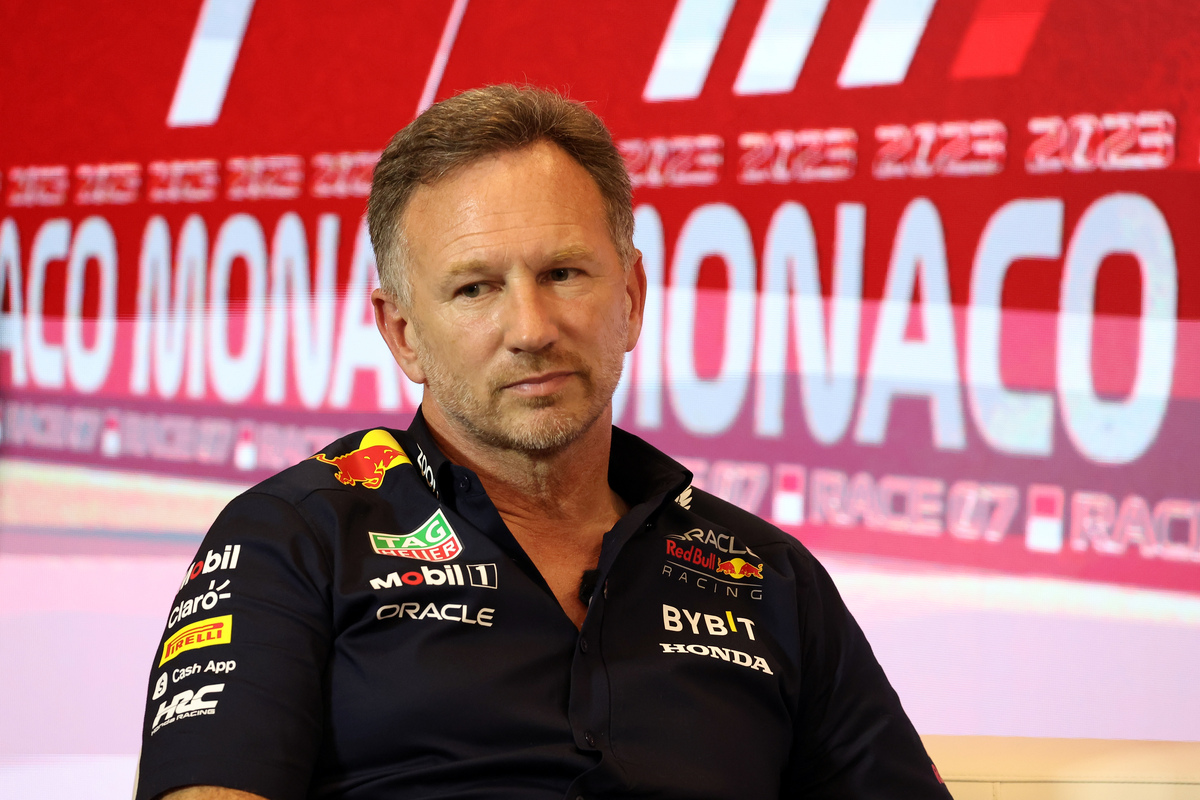

Christian Horner has claimed Red Bull would never have set up its own powertrains division had it known Honda would swiftly return to F1.
Earlier this week, Honda announced it will partner with Aston Martin from the 2026 season.
The Japanese marque will design and produce power units tailor-made to the Silverstone team’s requirements in what is effectively a works relationship.
Honda announced in October 2020 that it intended to withdraw from Formula 1 at the end of the following season.
According to Horner, the sport’s persistence on combustion power was key to that decision.
Since then, the sport has announced new power unit regulations that will see the electrification aspect of the power units increased from around 20 percent to 50 percent.
A fully sustainable fuel will also be mandated, breathing new life into combustion engines.
Those changes were enough to lure Honda back.
However, that decision came too late for Red Bull, which had by then embarked on its own project in Red Bull Powertrains – and has since inked a deal with Ford.
Red Bull Powertrains
“Was certainly an expensive decision,” Horner said of the change in plan.
“We’ve outgrown being a customer.
“I think for us to have the power unit on site, on campus, integrated fully with chassis and the synergies that creates with engine and chassis engineers sitting next to each other, I think for us, for the long term, the advantages are significant.
“We wouldn’t have made that jump had it not been for Honda’s withdrawal.
“So in many respects, Honda, we should be grateful for giving us that push to create our own engine facility and the jobs that it’s created and provided.
“Of course, the partnership we have with Ford, that is particularly exciting for the future, and the commitment, obviously from Red Bull and the shareholders to the project.
“Would we have made the same decision knowing what Honda’s decision is today? Absolutely not.
“But we made it, and we’ve committed to it and the more we’ve got involved the more benefit that we see to the group in the long term.”
Conversations with Honda
The decision to go with Ford was made because conversations with Honda about remaining involved ultimately led nowhere.
That was even after conversations saw the company’s F1 withdrawal walked back as it continued to service Red Bull in terms of power unit supply.
“We’ve had a lot of discussion with Honda, as a valued partner, over the last few years, Horner said.
“Originally, the deal was that they were going to be totally out of the sport by the end of 2022 and we’d be responsible for assembling the engines ourselves.
“So we managed to convince Honda to remain and to continue to assemble those engines to the end of 2025.
“We then had discussions during the autumn are going heading into the winter of last year about is there potentially any link up regarding the electrification, because combustion is something that they’re not keen to continue with.
“But to be honest with you, there was just too many compromises probably from both sides that would need to be made to enable that to happen.
“That’s when we decided to take up the option with Ford.”
Sustainable future
In announcing its deal with Aston Martin, Honda emphasised the importance of F1’s move towards increased electrification, and the impact that can have on its road cars in future.
It’s a point not lost on Horner, who noted the presence of combustion power as a sticking point in his own discussions.
“It demonstrates that the combustion engine isn’t dead,” he observed.
“There’s still life in combustion because when they [Honda] withdrew it was because of electrification.
“I think perhaps it was sustainable fuels and zero emissions and the route that Formula 1 is going for 2026, combustion became relevant to them again, whereas it was something that was very much off their agenda.
“So who knows, maybe we’ll get back to V8s and V10s that are fully sustainable…”





















Discussion about this post